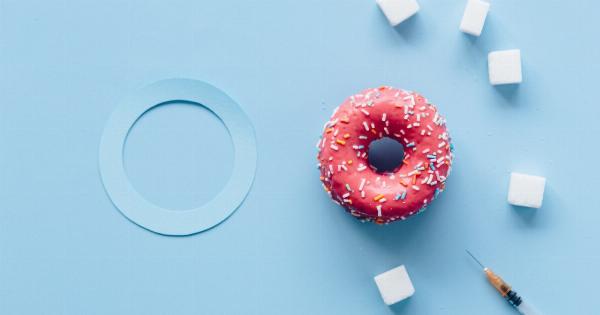There seems to be an overwhelming amount of information out there about what we should and shouldn’t eat. It can be hard to know what’s fact and what’s fiction.
With so much conflicting advice, it’s easy to feel guilty about our food choices. But it doesn’t have to be that way. In this article, we’ll explore some common myths about food and separate fact from fiction. By the end, you’ll be able to enjoy guilt-free eating without the stress.
Myth 1: Fat is Bad for You
Fat has long been demonized as the enemy of health and weight loss. But the truth is, fat is an essential nutrient that our bodies need to function properly. The key is to focus on healthy fats like those found in nuts, seeds, avocado, and fish.
These fats have been linked to a reduced risk of heart disease and other chronic conditions.
Avoid trans fats and saturated fats from processed and fried foods. These fats have been linked to a higher risk of health problems like heart disease, type 2 diabetes, and certain types of cancer. But even these fats can be enjoyed in moderation.
The key is to focus on a balanced diet that includes healthy fats alongside other essential nutrients.
Myth 2: Carbs Make You Fat
Carbohydrates are another nutrient that has been unfairly demonized. While it’s true that some carbs can be less healthy than others (think white bread and sugary snacks), that doesn’t mean all carbs are bad.
In fact, carbohydrates are an important source of energy for our bodies.
The key is to focus on complex carbohydrates like those found in whole grains and starchy vegetables. These carbs are slower to digest, which means they keep you feeling fuller for longer and help regulate blood sugar levels.
And don’t forget about the importance of fiber, which is found in many carbohydrate-rich foods. Fiber has been linked to a lower risk of heart disease, diabetes, and other chronic conditions.
Myth 3: Detoxes and Cleanses are Essential for Health
Detoxes and cleanses have become incredibly popular in recent years, promising to flush toxins from our bodies and promote weight loss. But the truth is, our bodies are already equipped with natural detoxification systems.
Our liver, kidneys, and other organs work together to rid the body of waste products.
While some detoxes and cleanses may temporarily help you lose weight, they are not a sustainable or healthy way to maintain your health in the long term.
Instead, focus on eating a balanced diet with plenty of fruits, vegetables, whole grains, and lean protein. Your body will take care of the rest.
Myth 4: Organic is Always Better
Organic produce and other foods have become increasingly popular in recent years as people look for ways to avoid pesticides and other chemicals.
While there is evidence that organic foods may have some health benefits, they are not always necessary or affordable for everyone.
It’s important to remember that conventionally grown produce and other foods are still safe to eat and contribute to a healthy diet.
If you’re concerned about pesticides and chemicals, consider prioritizing the “dirty dozen” (the most heavily sprayed crops) as organic purchases. But don’t stress too much about buying everything organic. The important thing is to focus on a balanced diet that includes plenty of fruits and vegetables, regardless of how they are grown.
Myth 5: Gluten-Free is Healthier
Gluten, a protein found in wheat, barley, and rye, has become a buzzword in recent years as more and more people adopt gluten-free diets.
While going gluten-free is necessary for those with celiac disease or gluten sensitivity, it’s not necessary or healthier for everyone.
In fact, many gluten-free products are highly processed and contain added sugars and fats to make up for the absence of gluten. If you do choose to eat gluten-free, focus on whole foods like fruits, vegetables, and lean proteins.
And don’t assume that gluten-free automatically means healthy.
Myth 6: Superfoods are a Cure-All
Superfoods like kale, chia seeds, and other trendy items are often touted as cure-alls for anything from weight loss to cancer prevention. While these foods do have some health benefits, they are not a replacement for a healthy diet overall.
The truth is, there’s no one food or nutrient that can magically make you healthier. Instead, focus on eating a balanced diet with a variety of foods, including plenty of fruits, vegetables, whole grains, and lean protein.
Myth 7: Eating Late at Night Causes Weight Gain
Many people believe that eating late at night causes weight gain. While it’s true that eating excess calories at any time can lead to weight gain, there is no evidence to suggest that eating late at night is inherently unhealthy.
What’s more important is the quality and quantity of the food you eat. If you’re eating a balanced diet overall, the time of day you eat shouldn’t matter too much.
That being said, it’s important to listen to your body and eat when you’re hungry, regardless of the time.
Myth 8: Skipping Meals is a Good Way to Lose Weight
Skipping meals in an attempt to lose weight is a common tactic, but it’s not a sustainable or healthy approach.
When you skip meals, your body goes into “starvation mode” and slows down your metabolism, making it harder to lose weight in the long term.
Instead of skipping meals, focus on eating a balanced diet with plenty of fruits, vegetables, whole grains, and lean protein.
And don’t forget the importance of regular exercise, which can help you achieve and maintain a healthy weight more effectively than skipping meals.
Myth 9: Sugar is the Ultimate Evil
Sugar has become another nutrient that has been demonized in recent years. While it’s true that too much added sugar can lead to a variety of health problems, it’s not inherently unhealthy in moderation.
The key is to focus on natural sources of sugar like fruits, which also provide essential vitamins, minerals, and fiber. And be mindful of added sugars in processed foods like soda, candy, and baked goods.
These sugars provide empty calories without any nutritional value and can lead to weight gain and other health problems when consumed in excess.
Myth 10: Guilt and Shame are Useful Motivators
One of the biggest myths about healthy eating is that guilt and shame are useful motivators. But the truth is, these emotions are not helpful or productive and can actually lead to disordered eating and other health problems.
The key is to focus on a positive, balanced approach to healthy eating. Instead of punishing yourself for indulging in a treat or skipping a workout, focus on the overall balance of your diet and exercise routine.
And if you do slip up, don’t beat yourself up about it. Remember, healthy eating is about progress, not perfection.


























